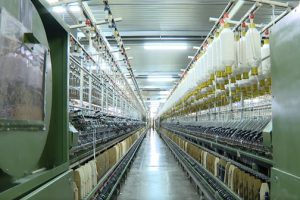
BY MENGESHA AMARE
It is an undeniable fact that promotion of products or services has become a very important aspect in transactions coupled with quality thereby meaningfully contributing to the economic growth of a country. Taking this fact into account, The Ethiopian Herald recently talked to Tamene Tolcha, an economist graduated from Bahir Dar University, to garner a piece of information about the economic significance of trade fairs, bazars and exhibitions, and how they can be much more lucrative to further augment economic share in the present day competitive scenario.
He said, “Exhibiting at tradeshows, souks and emporia offers several benefits to several economic trajectories and businesses. Unlike other promoting activities, exhibitions, tradeshows and bazaars or souks bargain a widespread display for brands to showcase their products, services and communicate key message to more receptive audiences. Exhibition participation can also help companies in particular and countries in general meet with customers who are pro-actively looking for a deal, which will result in being able to collect more leads and economic returns.”
As to him, economic growth is oftentimes driven by consumer spending and business investment. Any national or international trade fair always hits vast dimensions of the economy. They then provide consumers and vendors with an exclusive opportunity to the companies, both local and international regardless of their size, an opportunity to display their products and services to prospective local and foreign customers and business associations.
Besides, he said tradeshows, bazars and exhibitions open a new window of opportunity for the local producers and suppliers to compete on a national, regional, continental and global level thereby greatly contributing to the sustainable economic development of the country by expanding the volume of exports, easing the path to enter the international market and boosting the country’s business.
The promotion of products or services has become a very important factor in sales, and the development and utilization of transportation and communication tools in trade, market competition is no longer limited to certain regions but extends to the whole nation and even continental level, he opined.
According to Tamene, building capacity and enhancing competitiveness in overseas markets is based on producing competitive products and promoting these products on international markets. Tradeshows and exhibitions refer to one of the most useful methods to introduce products in other markets and it has developed into an important sector in attracting industrial development. For this reason, developing countries like ours regard trade fairs as an important vehicle for trade promotion. Tradeshows and exhibitions are time-limited activities, generally held regularly at same periods of the year at the same location.
He further elucidated that regularity of the exhibitions, tradeshows and bazaars enhance the awareness and effectiveness of these events. They typically host large number of participants who have the opportunity to exhibit their products from different sectors to buyers and to showcase the latest technological and innovative developments.
Yes, he added, exhibitions provide valuable information about the market availability and pave the way for the establishment and development of commercial cooperation between different enterprises. Increasingly tradeshows and exhibitions represent an important policy tool for Ethiopia to integrate its enterprises into global value chains and thus aspire to increase their competitiveness and market presence.
As learnt from Tamene, historically, the roots of today’s tradeshows trace back to the 12th century when merchant capitalism began. Under merchant capitalism, farmers, craftsmen, and merchants would visit towns and come together for trading fairs in order to showcase and sell their products. Despite the rapid development of electronic communication in the last decades, exhibitions continued to evolve as one of the most dynamic and effective elements of sales and marketing. In today’s modern economy, trade exhibitions provide the most suitable environments for establishing personal and enduring commercial acquaintances.
He also said that producing high-quality goods is not enough to achieve success and make sales and eventually come up with economic progress. There is a vast amount of alternatives of goods or services which consumers and producers can select from. In the era of globalization, the rapid developments in information and communication technologies, the expansion of production facilities, the rapid, high-quality and low-cost production opportunities, as well as new standards and quality demands for goods and services have increased the importance of marketing at all levels.
He also stated that participation in trade fairs and exhibitions offers significant advantages to companies and enables them to carry out marketing and promotional activities, to meet their existing or future customers and to develop business relations thereby buttressing country’s economy.
“Specialized exhibitions bring many enterprises together belonging to the same sector, thus enabling them to share information and establish business partnerships. Exhibitions offer important opportunities for marketing research, pricing and distribution and act as platforms for the showcasing of quality standards of products,” he added.
“The organizational success of exhibitions is based on a number of important criteria such as the quality of the available infrastructure, the geopolitical location of the host city venue as well as the proximity to local and regional markets, the quality of services delivered by fair organizers, the prominence of exhibitions in the overall industrial policy of the country, in particular with regards to sector and value chain targets, the presence of effective coordination and information exchange amongst institutional stakeholders operating in the exhibition sector as well as the development of digital infrastructure,” he explained.
“Trade fairs serve to establish and maintain customer relations, find business partners and personnel, and position companies and even countries as a whole. Visiting trade fairs can help fledgling start-up companies to gain a better overview of technological progress or the degree of competition to be expected in specific service or product segments. These all cumulatively contribute a lot to the economic advancement of the nation,” he said.
Other things being equal, he added, future demand for exhibition venues is expected to grow rapidly in view of the emerging economic fundamentals exhibited by the Ethiopian economy. Positive repercussions on the exhibition sector can be expected in line with the general trend amongst international organizations to not only organize international conferences for political and institutional stakeholders but also with and for the private sector with ensuing outcomes on investment or trade related business transactions.
Simply, there should be a clear resolve to support and facilitate the proliferation of exhibitions organized by both international and local business interests so as to equitably harness the spillover effects of organizing international events by renowned global industry players whilst promoting homegrown events which should primarily focus on promoting Ethiopian exports and linkages with international buyers, he added.
“Addressing the constraints including weak productivity growth, an aging population, falling labor force participation, an increasingly polarized income distribution, and high levels of poverty is of paramount importance in overcoming poverty. Not only does this help Ethiopia to diversify the export products but also to diversify the export destinations. It will also help organizations to collect information about their competitors such as competitors’ upcoming products, pricing techniques, marketing, and promotional strategies,” Tamene opined.
Most importantly, this will help the local companies to understand how foreign companies are penetrating into a new market with their products. As foreign companies might have taken part in the trade fair with new and innovative products, this will help the local entrepreneurs to have ideas about new products which they may introduce for Ethiopian consumers with customized feature.
To address its huge trade deficit and a negative balance in international trade, Ethiopia should promote the international trade fair to diversify the export basket, export destinations and boost exports, he said. Exhibitions also make a valuable contribution to the economy by providing employment in events organizing companies, venues, hotels, stand/booth design and build and so on, as to Tamene.
He said that if an industry wants to exert influence and to attract investment from local, regional or national government or from private investors, it has to compete with other industries for attention. An economic impact study needs to be conducted in Ethiopia as it provides a basis for comparison of one industry to another in generating employment and contributing to the Gross Domestic Product of the economy.
Though infant, exhibitions industry in Ethiopia generates an economic impact of billions of foreign currencies and this can influence investment in supporting this important industry that provides an essential lubricant to the wheels of commerce and importantly jobs. One of the most important benefits of participating in an exhibition is that it helps the country in general and companies in particular create brand relevancy as exhibiting at industry events is an excellent way to raise brand value and generate awareness and contribute to economic growth at a larger scale.
THE ETHIOPIAN HERALD FRIDAY 16 JUNE 2023




